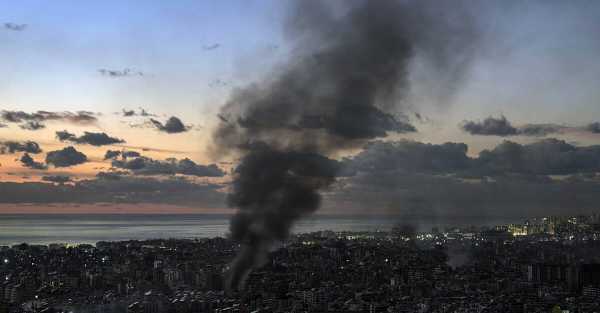
Israeli Prime Minister Benjamin Netanyahu has recommended his cabinet approve a US-brokered ceasefire agreement with Lebanon’s Hezbollah, setting the stage for an end to nearly 14 months of fighting linked to the ongoing war in the Gaza Strip.
In the hours leading up to the cabinet meeting, Israel carried out its most intense wave of strikes in Beirut and its southern suburbs and issued a record number of evacuation warnings.
At least 24 people were killed in strikes across the country, according to local authorities, as Israel signalled it aims to keep pummelling Hezbollah in the final hours before any ceasefire takes hold.
Israeli jets also targeted a building in a bustling commercial area of Beirut for the first time since the start of the war. The strike on Hamra was around 400 metres from the country’s central bank. A separate strike hit the Mar Elias neighbourhood in the country’s capital.
For the first time in the conflict, Israeli ground troops reached parts of Lebanon’s Litani River, a focal point of the emerging ceasefire deal.
In a televised statement, Mr Netanyahu said he would present the ceasefire to cabinet ministers later today.
He listed a series of accomplishments against Israel’s enemies across the region in recent months.
He said a ceasefire with Hezbollah would further isolate Hamas in Gaza and would allow Israel to turn its focus to Iran – Hezbollah’s backer and Israel’s biggest threat in the region. He vowed to strike Hezbollah hard if it violates the agreement.
“If Hezbollah breaks the agreement and tries to rearm, we will attack,” he said. “For every violation, we will attack with might.”
It was not immediately clear when the ceasefire would go into effect, and the exact terms of the deal were not released.
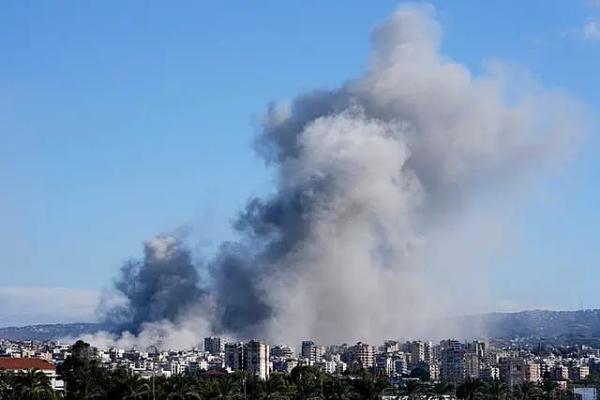
The deal does not affect Israel’s war against Hamas in Gaza, which shows no signs of ending.
The evacuation warnings covered many areas, including parts of Beirut that previously have not been targeted. The warnings, coupled with fear that Israel was ratcheting up attacks before a ceasefire, sent residents fleeing.
Hezbollah, meanwhile, kept up its rocket fire, triggering air raid sirens across northern Israel.
Lebanese officials have said Hezbollah also supports the deal. If approved by all sides, the deal would be a major step towards ending the Israel-Hezbollah war that has inflamed tensions across the region and raised fears of an even wider conflict between Israel and Hezbollah’s patron, Iran.
The deal calls for a two-month initial halt in fighting and would require Hezbollah to end its armed presence in a broad swathe of southern Lebanon, while Israeli troops would return to their side of the border.
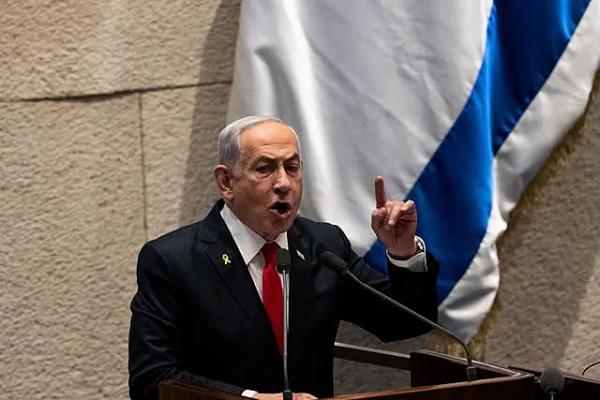
Thousands of Lebanese troops and UN peacekeepers would deploy in the south, and an international panel headed by the US would monitor all sides’ compliance.
But implementation remains a major question mark. Israel has demanded the right to act should Hezbollah violate its obligations. Lebanese officials have rejected writing that into the proposal.
Israel’s defence minister, Israel Katz, insisted on Tuesday that the military would strike Hezbollah if the UN peacekeeping force, known as Unifil, does not provide “effective enforcement” of the deal.
“If you don’t act, we will act, and with great force,” Mr Katz said, speaking with UN special envoy Jeanine Hennis-Plasschaert.
The European Union’s top diplomat, Josep Borrell, said on Tuesday that Israel’s security concerns had been addressed in the deal also brokered by France.
“There is not an excuse for not implementing a ceasefire. Otherwise, Lebanon will fall apart,” Mr Borrell told reporters in Italy on the sidelines of a G7 meeting. He said France would participate on the ceasefire implementation committee at Lebanon’s request.
Even as Israeli, US, Lebanese and international officials have expressed growing optimism over a ceasefire, Israel has continued its campaign in Lebanon, which it says aims to cripple Hezbollah’s military capabilities.
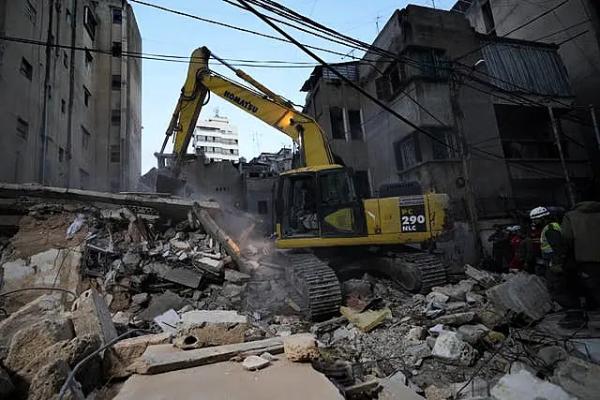
An Israeli strike on Tuesday levelled a residential building in the central Beirut district of Basta – the second time in recent days warplanes have hit the crowded area. At least seven people were killed and 37 wounded, according to Lebanon’s Health Ministry.
Three people were killed in a separate strike in Beirut and three in a strike on a Palestinian refugee camp in southern Lebanon. Lebanese state media said another 10 people were killed in the eastern province of Baalbek. Israel says it targets Hezbollah fighters and their infrastructure.
Earlier, Israeli jets struck at least six buildings in Beirut’s southern suburbs. One strike hit near the country’s only airport, sending plumes of smoke into the sky. The airport has continued to function despite its location on the Mediterranean coast next to the densely populated suburbs where many of Hezbollah’s operations are based.
Israeli military spokesman Avichay Adraee issued evacuation warnings for 20 buildings in the suburbs, as well as a warning for the southern town of Naqoura where Unifil is headquartered.
Unifil spokesperson Andrea Tenenti told the Associated Press that peacekeepers will not evacuate.
Other strikes hit in the southern city of Tyre, where the Israeli military said it killed a local Hezbollah commander.
The Israeli military also said its ground troops clashed with Hezbollah forces and destroyed rocket launchers in the Slouqi area on the eastern end of the Litani River, a few miles from the Israeli border.
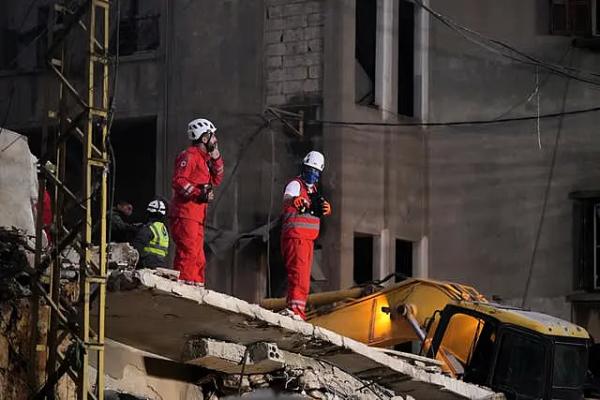
Under the ceasefire deal, Hezbollah would be required to move its forces north of the Litani, which in some places is about 20 miles north of the border.
A ceasefire between Israel and Hezbollah, the strongest Iranian-backed force in the region, would likely significantly calm regional tensions that have led to fears of a direct, all-out war between Israel and Iran.
It is not clear how the ceasefire will affect the Israel-Hamas war in Gaza. Hezbollah had long insisted that it would not agree to a ceasefire until the war in Gaza ends, but it dropped that condition.
Hezbollah began firing into northern Israel, saying it was showing support for the Palestinians, a day after Hamas carried out its attack on southern Israel on October 7 2023, triggering the Gaza war. Israel returned fire on Hezbollah, and the two sides have been exchanging barrages ever since.
Israel escalated its campaign of bombardment in mid-September and later sent troops into Lebanon, vowing to put an end to Hezbollah fire so tens of thousands of evacuated Israelis could return to their homes.
More than 3,760 people have been killed by Israeli fire in Lebanon the past 13 months, many of them civilians, according to Lebanese health officials. The bombardment has driven 1.2 million people from their homes. Israel says it has killed more than 2,000 Hezbollah members.
Hezbollah fire has forced some 50,000 Israelis to evacuate in the country’s north, and its rockets have reached as far south in Israel as Tel Aviv. At least 75 people have been killed, more than half of them civilians. More than 50 Israeli soldiers have died in the ground offensive in Lebanon.
Sourse: breakingnews.ie